Golf Ball Pack Size: How to Choose the Right One
Have you ever considered how the golf ball pack size relates to your game and you as a player? The number of golf balls you purchase at a time can significantly impact your performance, budget, and enjoyment of the game.
Whether you’re a casual golfer or a seasoned pro, selecting the right pack size ensures you always have enough balls on hand, prevents interruptions during play. And it can also offer the best value for your money. From single sleeves to bulk cases, the market offers a variety of pack sizes, each catering to different needs and preferences.



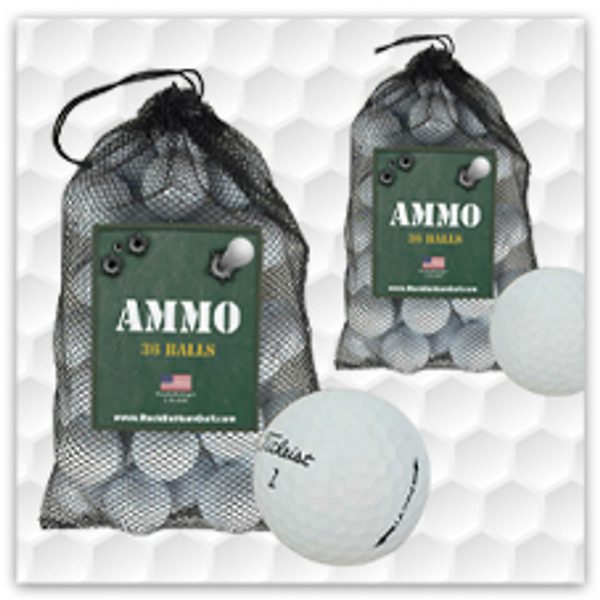

Understanding Golf Ball Pack Size: From Single Sleeves to Bulk Cases
Golf ball pack size range from single sleeves to bulk cases, each offering unique advantages.
Single Sleeves
Single sleeves typically contain three golf balls. They are ideal for casual play or testing new brands and models. These sleeves offer a convenient way to experiment with different types of golf balls without committing to a larger quantity. Perfect for golfers who play sporadically and want to find the best fit for their game.
Benefits and Drawbacks:
Benefits:
- Perfect for trying out different golf balls without committing to a larger pack: Single sleeves allow golfers to sample various brands and types of golf balls, helping them determine which one performs best for their game.
- Convenient for golfers who play infrequently: For those who don’t play golf regularly, single sleeves provide just enough golf balls for a few rounds without the need to purchase a larger, more expensive pack.
Drawbacks:
- Higher cost per ball compared to larger packs: Single sleeves often come at a premium price per ball, making them less economical than larger packs.
- Not suitable for frequent players due to limited quantity: Regular golfers might find single sleeves insufficient, as they would quickly run out of balls and need to repurchase frequently.
Small Packs (6-12 Balls)
Small packs usually contain six to twelve golf balls and are commonly purchased by beginners who might lose balls more frequently. They are also popular as gift packs, offering a thoughtful present for golf enthusiasts without being too costly.
Benefits and Drawbacks:
Benefits:
- Affordable option for beginners: Small packs offer a cost-effective way for new golfers to get started without making a significant financial commitment.
- Suitable for those who play occasionally: For casual golfers who play a few times a month, small packs provide an adequate supply without requiring too much storage space.
Drawbacks:
- Limited quantity may not be sufficient for regular players: Frequent golfers might find small packs insufficient, as they could quickly run out of balls during extended play or practice sessions.
- Slightly higher cost per ball compared to standard boxes: While more economical than single sleeves, small packs still tend to have a higher cost per ball compared to larger standard boxes.
Also Interesting:
- The Best Golf Balls for Seniors: Enhance Your Game in 2024
- Supercharge Your Game: How to Choose the Right Golf Ball for Different Courses
- Best Golf Balls to Buy in 2024
- Navigating the Golf Ball Rollback: Implications and Insights
Standard Boxes (12 Balls)
Standard boxes contain twelve golf balls and are a popular choice among regular golfers. This pack size balances quantity and convenience, making it ideal for maintaining a steady supply for consistent play.
Benefits and Drawbacks:
Benefits: Regular players and those participating in tournaments often prefer standard boxes. They offer enough balls to last several rounds without the need for frequent repurchasing.
Drawbacks: Standard boxes are suitable for golfers who play regularly, ensuring they have enough balls for both casual rounds and competitive play. They are also handy for practice sessions, providing a sufficient quantity to work on improving various aspects of the game.
Large Packs (24-36 Balls)
Large packs contain 24 to 36 golf balls, catering to frequent golfers and regular practice sessions. These packs offer a substantial quantity, ensuring avid golfers are well-stocked for multiple rounds and extended practice.
Suitable for Frequent Golfers and Practice Sessions:
Benefits:
- Cost-effective for frequent players: Large packs typically offer a lower cost per ball, making them an economical choice for those who play often.
- Ensures an ample supply for extended practice sessions: Having a larger quantity of balls on hand allows golfers to focus on improving their skills without worrying about running out of balls.
Drawbacks:
- Requires more storage space: The larger quantity of balls necessitates adequate storage, which might be a consideration for those with limited space.
- Higher initial cost compared to smaller packs: Although cost-effective in the long run, the upfront expense of large packs can be significant.

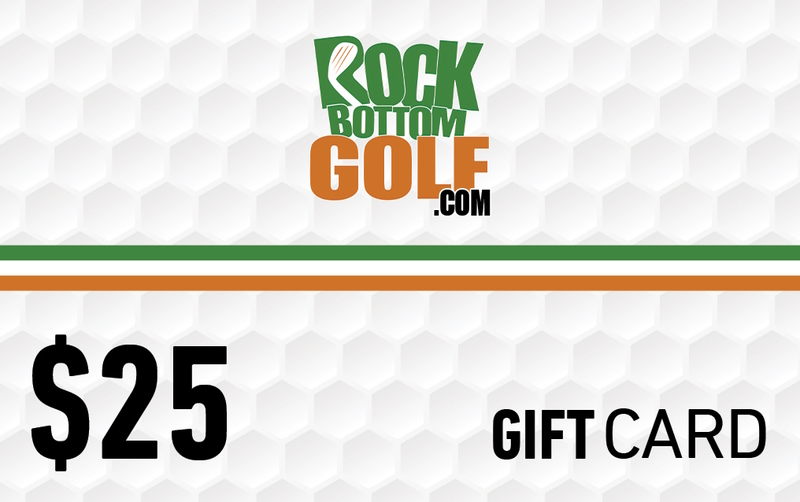


Bulk Cases (48+ Balls)
Bulk cases contain 48 or more golf balls. And they are often used by driving ranges or golfers who buy in bulk. These cases provide a large supply, ideal for extensive practice sessions, ensuring golfers never run out of balls.
Benefits and Drawbacks:
Benefits:
- Most cost-effective option per ball: Bulk cases offer the lowest cost per ball. This makes them the most economical choice for frequent players and driving ranges.
- Ideal for driving ranges and serious golfers who practice frequently: The large quantity ensures that there are always enough balls available for continuous practice and play.
Drawbacks:
- Significant upfront investment: The initial purchase cost of bulk cases is substantial, which might be a consideration for budget-conscious golfers.
- Requires substantial storage space: Storing a bulk case requires ample space, which might not be feasible for all golfers.
Recommended:
- Integrating Technology in Golf: Revolutionizing the Game with Advanced Golf Balls and Simulators
- Golf Balls In The Cold And Why Your Golf Balls Behave Differently
- Understanding Golf Ball Compression: A Guide for Optimal Performance on the Course
- Teeing Off Green: The Case for Recycled And Used Golf Balls
Factors to Consider When Choosing Pack Sizes
Several factors influence the ideal golf ball pack size for your game.
1. Frequency of Play
How often you play significantly impacts your choice of golf ball pack size. Regular players benefit from larger packs, while occasional golfers may prefer smaller quantities.
- Regular Players: If you play golf several times a week or participate in frequent tournaments, investing in larger packs or bulk cases makes sense. These pack sizes ensure you have a steady supply of golf balls, minimizing the need for constant repurchasing. Additionally, buying in bulk reduces the cost per ball, offering better value for money.
- Occasional Golfers: For those who play once a month or less, smaller packs like single sleeves or small packs (6-12 balls) are more appropriate. These quantities are sufficient for infrequent use, ensuring you have fresh balls each time you play without overstocking. Smaller packs are also easier to store and carry, making them convenient for occasional outings.
2. Skill Level
Your skill level influences the number of golf balls you need. Beginners may lose more balls and therefore might opt for larger packs, whereas advanced players might prioritize specific ball types in smaller quantities.
- Beginners: New golfers are more likely to lose balls as they learn the game, making larger packs (24-36 balls) or bulk cases (48+ balls) practical. Having a larger quantity on hand allows beginners to play without worrying about running out mid-round. And it provides more opportunities to practice, accelerating the learning process.
- Intermediate Players: As golfers improve, they tend to lose fewer balls but still need a consistent supply for practice and regular play. Standard boxes (12 balls) or large packs (24-36 balls) are ideal for this group, balancing quantity and convenience.
- Advanced Players: Skilled golfers typically lose fewer balls and may focus on specific ball types that enhance their performance. They might prefer standard boxes or single sleeves if they are testing new models, prioritizing quality and performance over quantity.


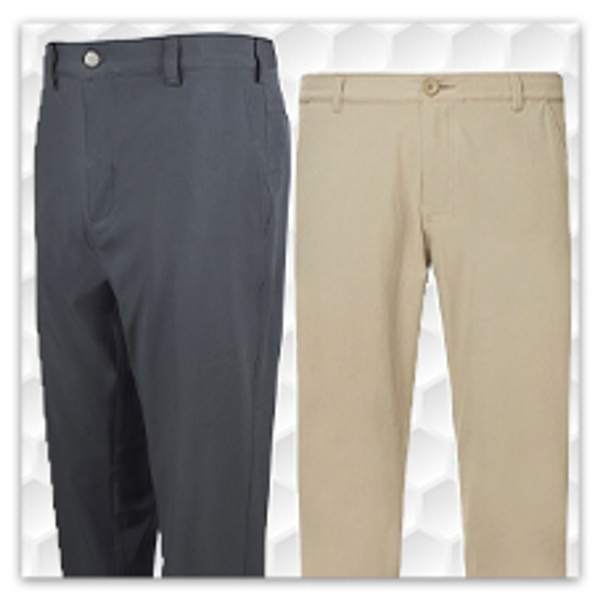
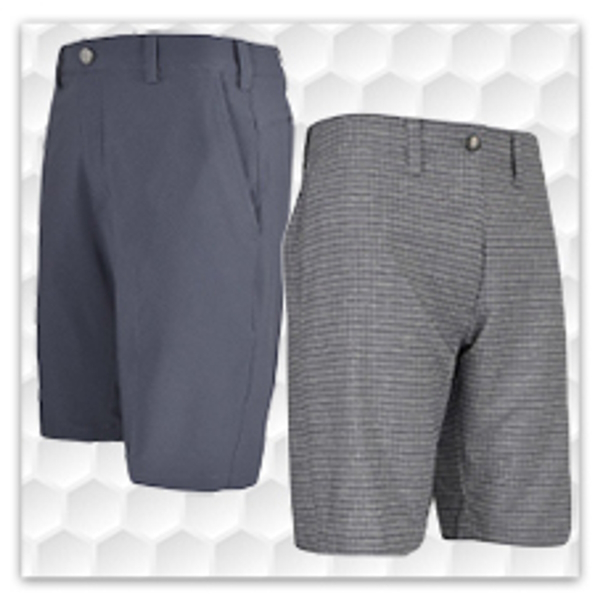

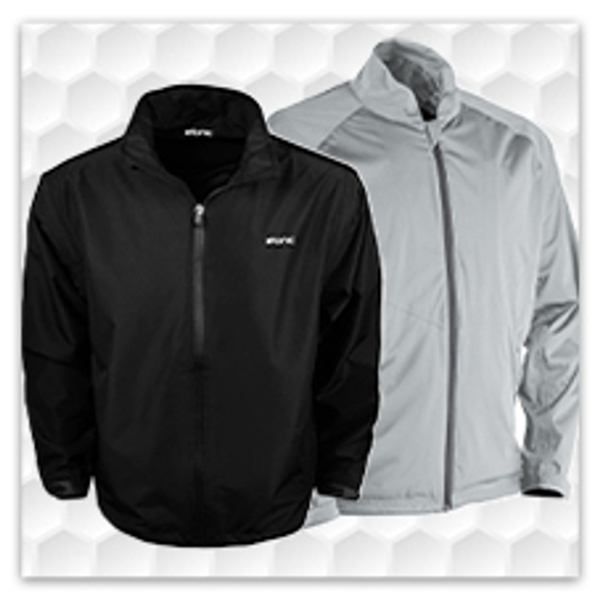

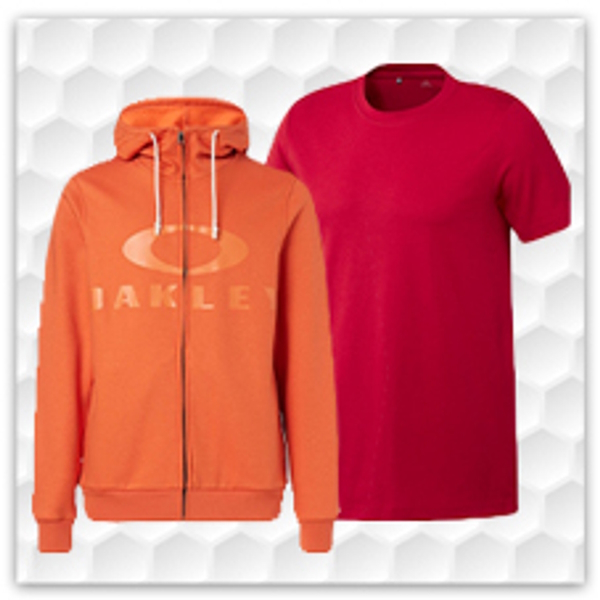
3. Budget
Cost considerations are crucial when choosing pack sizes. Larger packs typically offer better value for money, but the initial expense is higher. Balancing budget with usage frequency is key.
- Cost-Effective Options: For golfers looking to maximize value, bulk cases (48+ balls) and large packs (24-36 balls) provide the lowest cost per ball. These options are ideal for frequent players who want to minimize the overall expense of purchasing golf balls.
- Budget-Conscious Choices: Golfers with a tighter budget might opt for smaller packs or standard boxes. While the cost per ball is slightly higher, the initial outlay is more manageable. Single sleeves or small packs can also be strategic choices for testing different brands without a significant financial commitment.
4. Purpose
Different purposes, such as practice or competition, influence pack size selection.
- Practice Sessions: For golfers focusing on practice, particularly those using driving ranges or practicing regularly, bulk cases (48+ balls) or large packs (24-36 balls) are the best choices. These pack sizes ensure a plentiful supply for extended practice sessions, helping golfers refine their skills without needing frequent replenishment.
- Competitive Play: For tournament play and regular rounds, standard boxes (12 balls) or small packs (6-12 balls) are sufficient. These pack sizes provide enough balls for multiple rounds and are easy to transport. Golfers can also choose specific types of balls that suit their playing style and the conditions of the competition.
5. Storage and Portability
Consider storage space and ease of transport when choosing pack sizes.
- Storage Needs: Bulk cases and large packs require ample storage space, making them suitable for golfers with dedicated storage areas, such as a garage or a golf locker. It’s important to store golf balls properly to maintain their quality, away from extreme temperatures and moisture.
- Portability: Smaller packs and single sleeves are highly portable, fitting easily into golf bags and providing convenience for golfers on the go. These pack sizes are ideal for those who prefer to travel light or have limited storage space at home. They also make it easier to switch between different ball types during a round, depending on the course conditions and personal preference.
Read More:
- Used Golf Balls: The Process From Dirty to Delivered
- Does the Weather Affect a Golf Ball’s Distance?
- How To Hit A Golf Ball: The Basics of a Drive, a Putt, and a Chip Shot
- High Visibility Golf Balls: Are They Really Better Than White Golf Balls?
Final Thoughts
The right golf ball pack size can significantly enhance your golfing experience. Imagine being on the course, confidently pulling out a ball from a pack that fits your needs perfectly, without worrying about running short or overstocking. For frequent practice, bulk cases become a treasure trove, while small packs are ideal for beginners starting their journey.
Selecting the right pack size balances practicality and performance, ensuring every game you play is well-equipped with the right number of balls for your unique golfing journey. Next time you stock up, consider what truly suits your play style. And let your choice of pack size be the silent partner that keeps your game in top form.
Writer/Editor: Danny Kapp is a passionate golf enthusiast and an 8-year veteran golf blog writer for Rock Bottom Golf, offering his unique perspective on the game. With a keen eye for detail, he covers various aspects of golf, ranging from technical insights to the latest trends in golf equipment and golf technology.






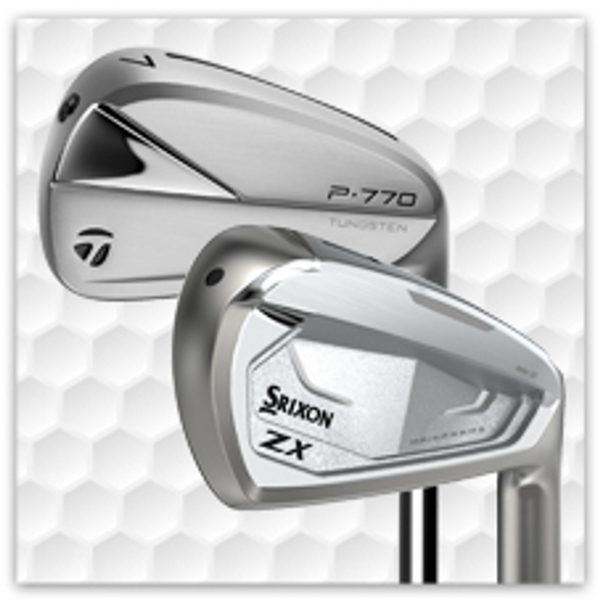
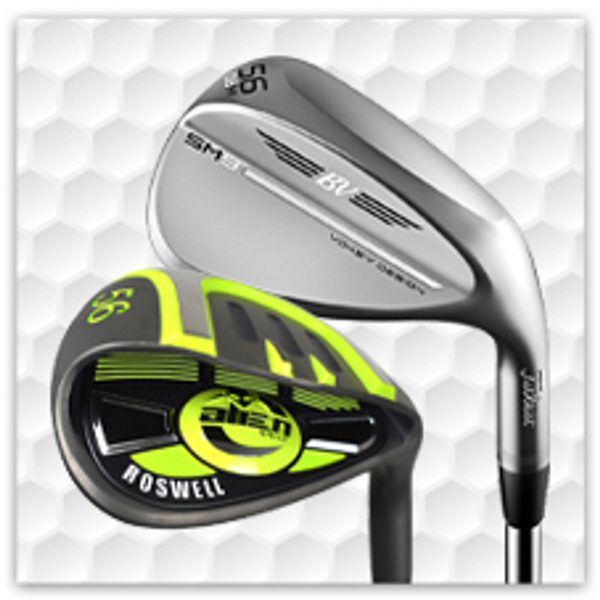

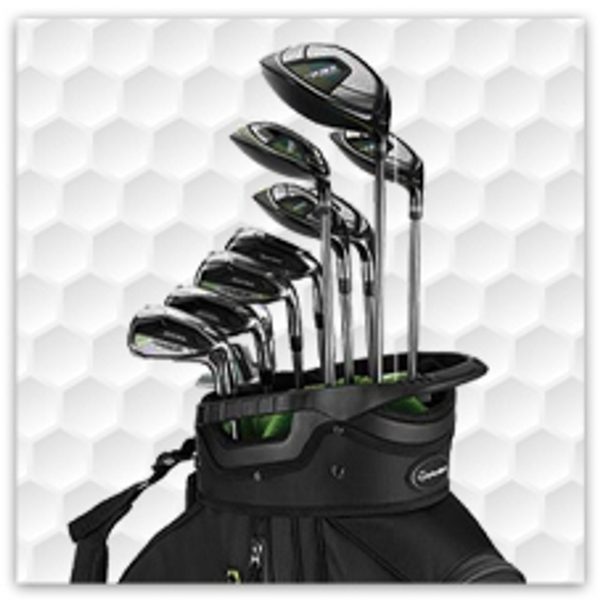
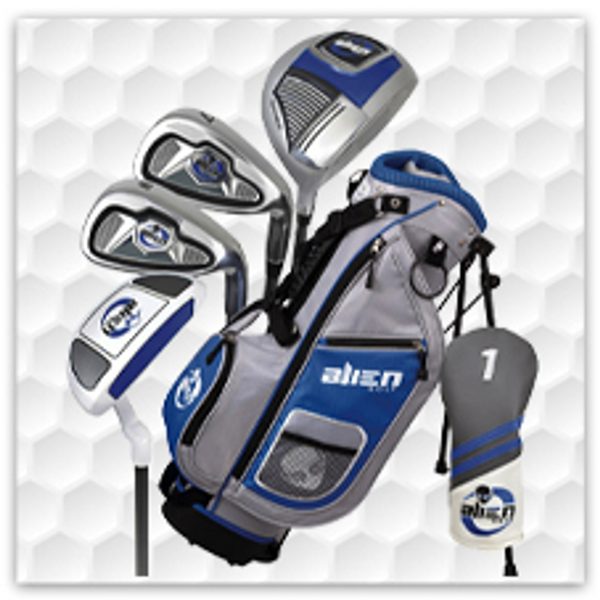




Absolutely hate the idea of rolling back for amateur golfers….quit catering to the pros and tighten the fairways and grow their ruff when it’s pga tournament time ….
Pingback: Best Golf Balls for Beginners: Recommendations and Reviews
Pingback: Altitude on Golf Ball Performance: Tips for High Elevation Golf
Pingback: Best Golf Balls for Fall: Best Picks for Cooler Weather Performance